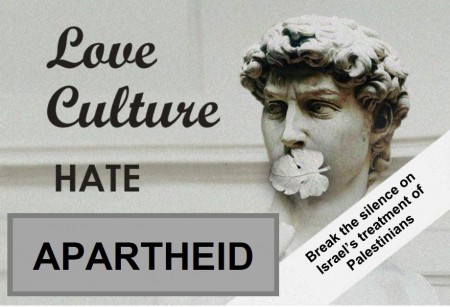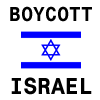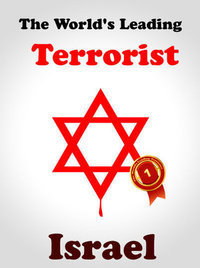47 years to the Israeli Occupation of the West Bank, Gaza and the Golan Heights!
1930 Days to the Israeli Blockade of Gaza:
 End Israeli Apartheid Now!
End Israeli Apartheid Now!
Support Palestinian universities – it is what people under the Israeli jackboot ask you to do
Any army fighting against children, has already lost the war!
Israeli War Criminals and Pirates – to the International Criminal Court, NOW!
Make Zionism History!
Demand the destruction of Israeli WMDs NOW!
EDITOR: London gets an Israeli film festival
One of the results of the boycott seems to be a much larger Israeli investment in London and the UK, in order to counter BDS. This is just one such example – in a way it is clear evidence of the power and success of the boycott.
Reel politics: FT
By Chay Allen
Seret is the first Israeli film festival to launch in London
Otto Preminger’s 1960 epic film Exodus was charged by some with presenting an inaccurate picture of the regional conflict but, none the less, it played a significant role in popularising Israel’s view of events leading to its foundation. That year, the Knesset passed the controversial Lands Law, prohibiting the sale of Israeli land to non-Israeli buyers, and wanted the support of the international community. It was a good moment for a bit of pro-Israeli soft diplomacy.
Exodus demonstrates the power of film to help construct a positive national identity overseas, and its influence has rippled on: New York, Miami and Los Angeles have all held annual Israeli film festivals since 1982. Although London has staged an annual Palestinian film festival since 1999, it has yet to hold an Israeli film festival. But June 14 sees the launch of Seret, a festival of Israeli film and television. The festival’s sponsors include the Israeli Embassy, the British Council and Bi-Arts, a joint initiative of the Israeli and British governments.
Seret has been jointly organised by Tel Aviv-based Patti Hochmann, a member of the Israeli Film Academy; London-based marketing manager Odelia Haroush; and Anat Koren, editor of Alondon, London’s main Hebrew-language magazine. According to Haroush the festival aims “to show the social and cultural diversity, and everyday life in Israel, through the medium of film”.
Screening 14 recent Israeli films and two episodes of current Israeli television series, Seret follows a highly successful year for both industries: Joseph Cedar’s Footnote (2011), included in the festival, was nominated for Best Foreign Language Film at this year’s Academy Awards, while Gideon Raff’s Homeland (2011), an adaptation of his Israeli television series Prisoners of War (2009), won two Golden Globes and has been seen in more than 40 countries. Adir Miller’s sitcom Ramzor (2008), also on show at the festival, won the award for best comedy at the 2010 International Emmy Awards and has been adapted in the US as Traffic Light.
The festival line-up features documentaries by Tomer Heymann and Liora Amir Barmatz, Roi Werner’s romantic comedy 2 Night (2011), and psychological, historical and political dramas such as Jonathan Sagall’s Lipstikka (2011) and Ami Levine’s Sharqiya (2012). Explaining the criteria for selection, Koren said “the films had to be recent and have artistic merit. The only film not to have been made in either 2011 or 2012 is The Gift to Stalin, a 2008 co-production between Israel, Kazakhstan, Russia and Poland.”
The Gift to Stalin follows the story of Sashka, a Kazakhstani Jewish boy deported to the Kazakh steppes in 1949. Displacement and migration are recurring themes in much of the work, especially in Werner’s 2 Night and Heymann’s documentaries. In Maya Kenig’s Off White Lies an estranged father and daughter are thrown together, after being made homeless through the father’s fecklessness.
Seret comes in the wake of increasing pressure for a cultural boycott of Israel from campaigners against the Israeli occupation of Palestine. Last month protesters denounced the decision to let Habima, Israel’s national theatre company criticised for performing in the West Bank, stage The Merchant of Venice at London’s Globe. The historian Simon Schama suggests that “the Habima row shows just how ignorant much opinion is in the UK of the complications of cultural politics in Israel. I suspect the same sanctimoniousness will hit the film festival.”
Yosefa Loshitzky, author of Identity Politics on the Israeli Screen (2001), maintains that Seret is politically motivated: “The launch of the first Israeli film festival in London, the heart of what Israel likes to see as the new anti-semitic Europe, is part of a strategy of using ‘soft power’ to combat the deteriorating image of Israel in the international, and particularly British, arena.”
This is a notion co-organiser Koren is keen to refute: “I don’t see any political aspect to a film festival; we are talking about a cultural exchange between two countries.”
Many of the films selected are, though, overtly political. Michal Aviad, whose Invisible (2011) is part of the festival, emphasises that “my films are always political and often refer to the Palestinian occupation; my stand against the occupation has been clear and loud for many years.”
Sagall’s Lipstikka and Levine’s Sharqiya also address the suffering of the inhabitants of occupied Palestine, while Dina Zvi-Riklis’s The Fifth Heaven (2011), set in a Jewish Palestinian orphanage in 1944 under British occupation, uses the story of 13-year-old Maya, placed in the orphanage by her father, as an allegory of the struggle and perceived abandonment of the stateless Jewish people.


